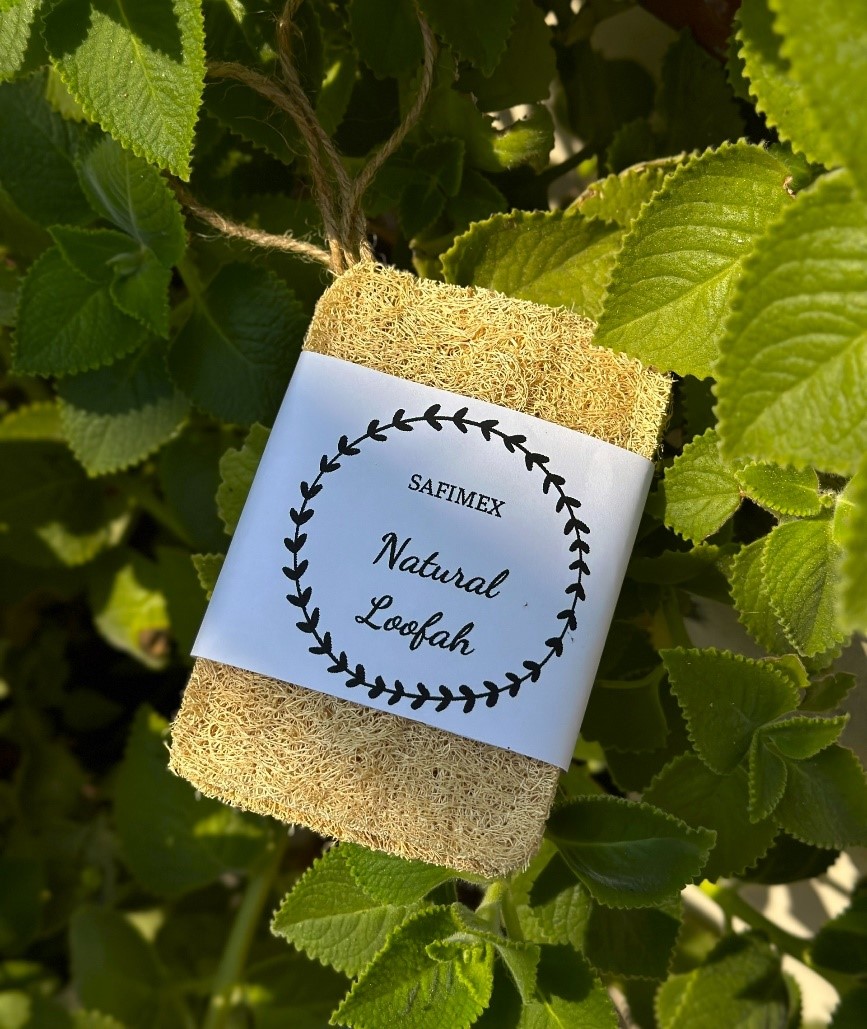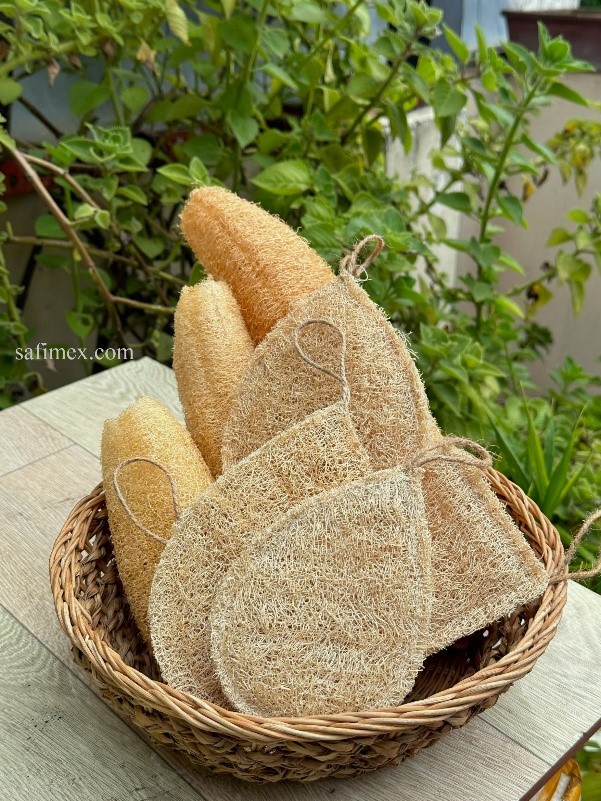No products in the cart.
News
3 REASONS: WHY LOOFAHS ARE THE MOST SUSTAINABLE SPONGE
Why does a sustainable sponge matter?
Every year, approximately 400 plastic sponges will be thrown away in the US alone. That amounts to 1.5 million CU of waste per year. Most conventional sponges are made with plastics like nylon and polyurethane. As you scrub you use the sponge, tiny bits of the plastic break off and are released into our waterways. These tiny bits of plastic are known as microplastics. In a 2019 study from the Scripps Institute of Oceanography there are an estimated 8.3 million pieces of microplastics per cubic metre of water. This brings us to our first reason that loofah sponges are the most sustainable sponges….
1: They are plant-based
Unlike most conventional plastic based sponges, natural loofah sponges are 100% biodegradable. Loofahs are actually the dried fruit of the luffa vine. The loofah sponge grows on the vine until it produces seed and dries completely. Once it is completely dry on the vine, the dried fruit is harvested and the outer shell is removed leaving behind a fibrous skeleton that is hard when dry and soft when wet.
Conventional sponges with a scouring pad are assembled with a glue made of moisture-cured polyurethane (more micro-plastics!). They are also then packaged in plastic as well.
In contrast, as long as the natural loofah sponge you use is not assembled with any additional plastic thread, cloth, tags or cords, it is 100% biodegradable and can be composted in your home compost. For this reason, Safimex Sponges are completely plastic free, made with organic cotton thread and cord so you can just toss it in your compost when you feel it has reached the end of its usable life! Safimex Sponges are packaged exclusively in cardboard or paper packaging!
2: Loofahs can be grown in 1 season!
Ok, so what about cellulose sponges!? Cellulose sponges are plant-based too, right? It’s true, cellulose sponges are plant-based. However the energy and resources required to produce cellulose far exceeds what is required to produce a loofah sponge. Take a look at this video that explains how cellulose is produced.
From harvesting young Eucalyptus or Populus trees, to transporting them to the factory, where the wood is shredded then digested/boiled to remove the lignon, producing cellulose requires significant resources. Cellulose production also requires chemical softeners, bleach, and dye. See table comparison below.
Cellulose is an amazing invention and product, but for how much effort it requires, it is not sustainable to use it for a household object that lasts about 1 month on average. Additionally, Safimex sponges last 3-5 times longer than a conventional sponge since they dry out more quickly and therefore never get slimy or smell funky.
3: Loofahs support small-scale farms and farmers
By purchasing and using natural loofahs, you are supporting the livelihood of farmers and preserving farmland. Farms can offer habitat to insects and wildlife as well as provide corridors for wildlife. If you purchase loofahs from Safimex Sponges, you are supporting small-scale farms and craftspeople that grow, process and sew the sponges for your use.
Conclusion
Loofah sponges can be grown in one growing season, supporting agricultural land and communities, and can be composted in a home compost making them the most sustainable scrubbing sponge on the market.
Safimex company has supplying Natural loofah with a good price. We are one of the biggest farmers of Loofah in Vietnam. We have supply our loofah products to all around the world from Japan, South Korea, US, Europe markets and always received the good feedbacks about the quality for customers.
We ensure to provide the best loofah which harvest and selected careful. We can supply you in bulk or small quantity and totally free samples.
Please feel free to contact us if you having a plan to purchase this item at info@safimex.com or click at https://www.alibaba.com/product-detail/Natural-loofah-pads-sponge-use-for_10000018104202.html?spm=a2747.product_manager.0.0.32e02c3ccGzIkg
Source: Qucurby
SAFIMEX JOINT STOCK COMPANY
Head Office: 216/20a Duong Ba Trac Street, Ward 2, District 8, Hochiminh City, Vietnam.
Tel: (+84)-(28)-3636 2388 | (+84)-(28)-3636 2399 | Website: https://safimex.com/


